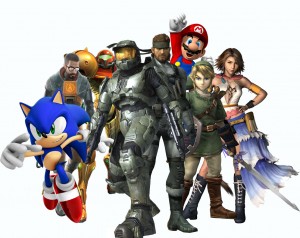In a recent survey of 20-something employees, the majority said that they expected a promotion in the workplace at least every two years. Most surprising to business owners, however, was that they did not believe that such advancement should be in any way attached to performance on the job.
My colleague Rob Konopaske at MillenialEdge360 calls this the “level-up” syndrome. The video game generation has been indoctrinated in the motivation of small rewards. Learn the moves, accomplish the tasks of a specific challenge, and you get rewarded with new skills, weapons or money, and move on.
 I think video games have created another problem with young employees’ approach to work. No one in a game is merely Bob Johnson, cubicle dweller doing the same work as a hundred others with the same job. You are the center of attention, Dra’ag the Enforcer, doer of deeds and champion of good. Our culture of micro-celebrity, collecting Twitter or Facebook followers to whom you can broadcast the details of your life, is a quest to duplicate your fantasy world uniqueness in reality.
I think video games have created another problem with young employees’ approach to work. No one in a game is merely Bob Johnson, cubicle dweller doing the same work as a hundred others with the same job. You are the center of attention, Dra’ag the Enforcer, doer of deeds and champion of good. Our culture of micro-celebrity, collecting Twitter or Facebook followers to whom you can broadcast the details of your life, is a quest to duplicate your fantasy world uniqueness in reality.
Millennial employees aren’t shy about asking for help and mentoring. The Boomers, tempered in a more competitive workplace (Supply and demand – lots of people were vying for the same brass ring), expect that figuring things out for yourself is a sign of competence. Millennials are accustomed to having the answers at their fingertips, accessing the World Wide Web for everything from the name of the drummer in that obscure garage band to directions on how to make a quiche.
Why memorize something when you have the answers on your smart phone? The educational system no longer teaches by rote, and why should they? I’m old enough to remember being forbidden a calculator in a math test, now that would just seem silly. When was the last time you did long division on a piece of paper?
Is it surprising when they expect success in the workplace to operate by the rules they’ve been taught? Learn the tasks of the position, and you will inevitably advance. If you forget the rules, look them up. Announce every success, regardless of how minor, for others to appreciate. Failure, even repeated failure to accomplish the same thing, is only to be expected. After all, how often did Dra’ag have to die before he breached the citadel?
It’s time for Boomer owners to stop waiting for the Millennials to figure it out. In a great Wall Street Journal article on Boomers this weekend, the humorist P.J. O’Rourke says “we’re the generation who insisted that a passion for living should replace working for one.” (The article is called The Boomer Bust, not to be confused with my work at www.theboomerbust.com) We raised our kids to know that they are special. Trophies for every player on every team. Now we have to live with those kids in our businesses.
The good news is that they are technologically savvy, fast to learn, and good workers when they understand what is expected of them. Give them electronic access to the information they need, and the ability to tap that information constantly. Recognize their accomplishments with incremental advancement or rewards. Let each one know that he or she is special, even if you have to relax your own standards for what constitutes “special.”
Boomers may forget how resentful we were of our parents’ expectations that we would work 30 years in the same job, and be thrilled to get a gold watch at the end. We wanted more, and we worked to get it. Now we’ve raised a generation that expects what we have, and doesn’t necessarily connect getting it directly with effort. It’s pointless to complain about what we’ve made them.
My new book, Hunting in a Farmer’s World: Celebrating the Mind of an  Entrepreneur, is now available on Amazon in paperback, hardcover and Kindle. It is an ownership book, not a management book, and is illustrated with the stories of real entrepreneurs who faced challenges that apply to us all.
Entrepreneur, is now available on Amazon in paperback, hardcover and Kindle. It is an ownership book, not a management book, and is illustrated with the stories of real entrepreneurs who faced challenges that apply to us all.

One Response to Employment as Video Game